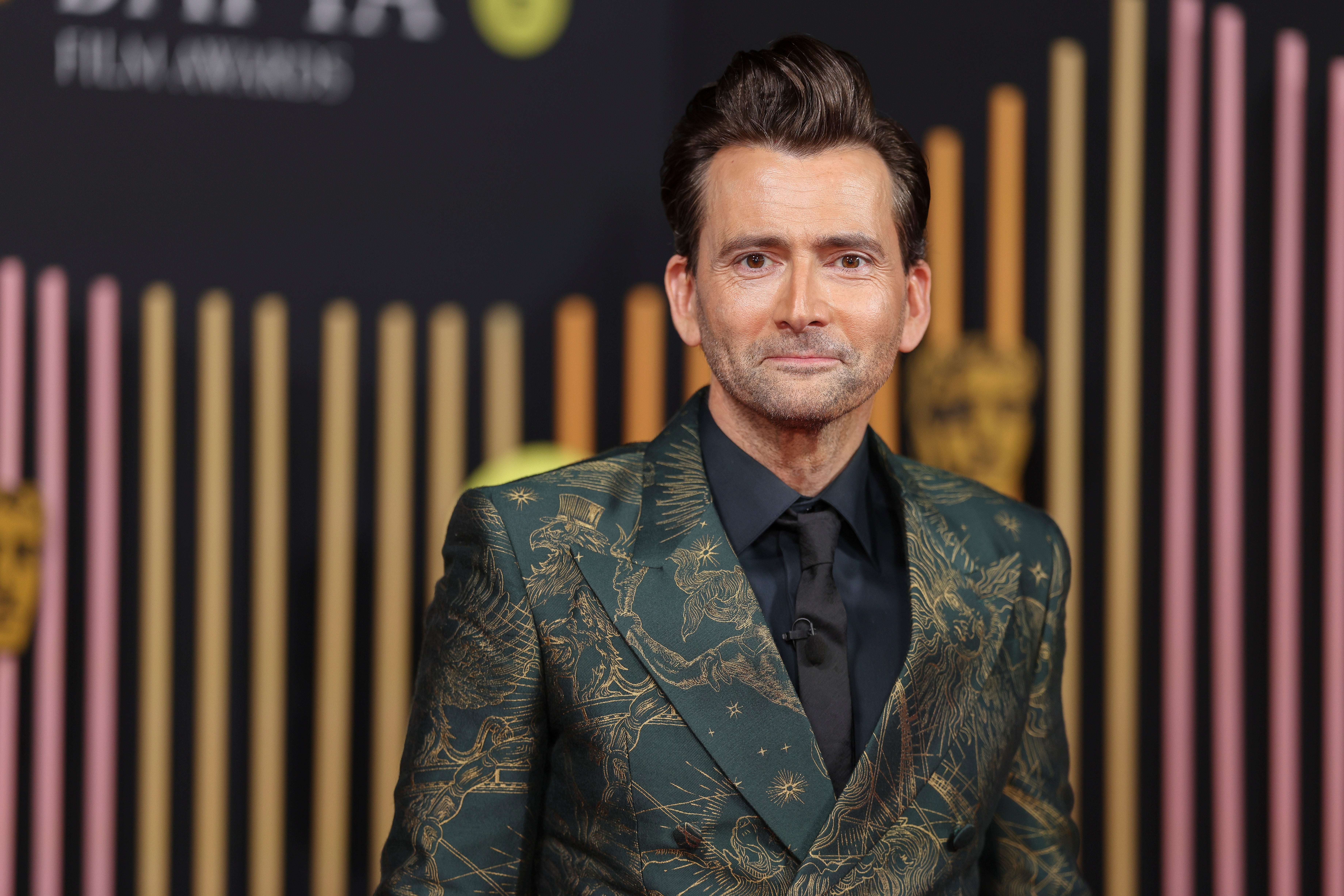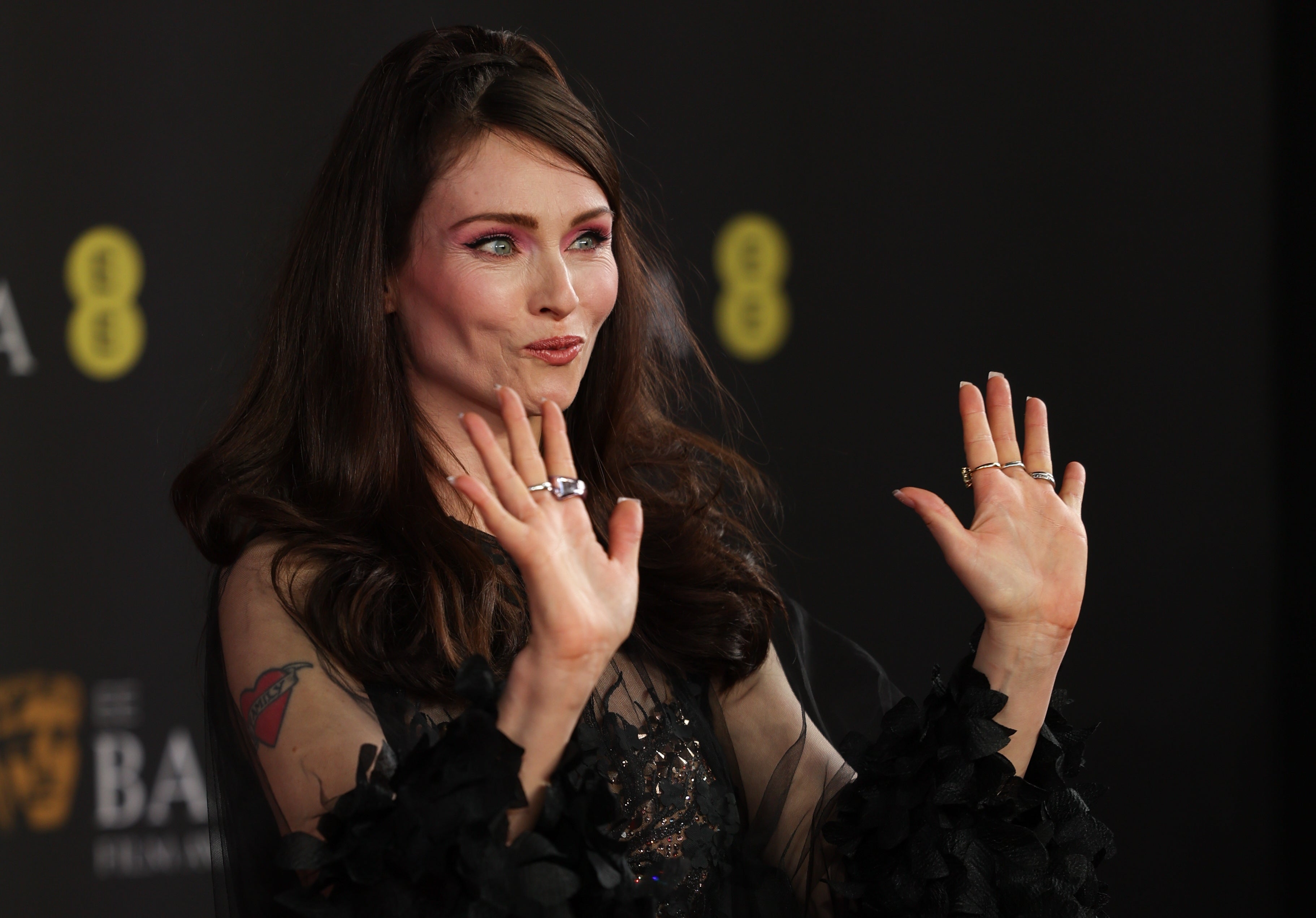Baftas 2024 review: A very British reminder that 2023 was more than just Barbenheimer
In its current form, broadcast two hours after the actual ceremony, the Baftas is a strange beast – but one that host David Tennant mostly manages to tame
Your support helps us to tell the story
From reproductive rights to climate change to Big Tech, The Independent is on the ground when the story is developing. Whether it's investigating the financials of Elon Musk's pro-Trump PAC or producing our latest documentary, 'The A Word', which shines a light on the American women fighting for reproductive rights, we know how important it is to parse out the facts from the messaging.
At such a critical moment in US history, we need reporters on the ground. Your donation allows us to keep sending journalists to speak to both sides of the story.
The Independent is trusted by Americans across the entire political spectrum. And unlike many other quality news outlets, we choose not to lock Americans out of our reporting and analysis with paywalls. We believe quality journalism should be available to everyone, paid for by those who can afford it.
Your support makes all the difference.At last year’s Baftas, a number of things happened: a two-hour-and-a-half German-language film won Best Picture; Irish actors swept the supporting categories; and a Californian heartthrob picked up the Best Actor award for playing a Mississippian heartthrob. These moments, however, have been almost totally erased in our collective memory in favour of a short rap interval in which Ariana DeBose relayed how Angela Bassett “did the thing”. It was the sort of cringe-inducing viral segment that no live event can confect, or truly aspire to. So, a year on, the question is: how does the buttoned-up Baftas follow that viral moment in awards show history? Or would the movies, at last, be allowed to do the talking?
“Tonight is going to go smoother than Ken’s chest,” host David Tennant announced at the off, his kilt somehow fluttering in the airless atmosphere of the Royal Festival Hall. Tennant is one of those actors who’s an A-lister on his home turf, but only known internationally to the community of nerds that follow Doctor Who or Harry Potter. He has never done a Marvel movie, nor has he had a sniff of an Oscar nomination himself. He is more small screen than big screen; more The Office than Box Office. And yet he has the innate charisma necessary to straddle the line between comic emcee and industry advocate. As a host, he is in the mould of David Niven, who conducted proceedings at the Oscars three times between 1958 and 1974: suave, cheeky but, most importantly, a safe pair of hands.

That said, the Baftas, in its current broadcast form, is a strange beast. “Even I don’t know who’s won,” Tennant told his assembled audience during his opening monologue, which was strange given that I was receiving BBC push notifications announcing that Cillian Murphy and Emma Stone had just taken the top acting gongs. The decision to air the ceremony following an approximate two-hour delay (and after social media becomes ablaze with news of the winners) cuts all the tension from proceedings. It nixes the possibility of the sort of spontaneous chaos – Warren Beatty and Faye Dunaway screwing up the Best Picture announcement or Will Smith forcibly removing his wife’s name from Chris Rock’s mouth – that have typified the Oscars in recent years. While that makes the show feel less urgent, it also allows the Bafta bosses to elide some of the (politely speaking) less public-facing awards, like Best Sound or Best Animated Short. Their speeches are edited into punchy little packages; the orchestra never once required to play winners off stage.
All the same, it begs the question of what exactly the point of the Baftas is. You see, the taxonomy of awards shows is essentially this: the Golden Globes is where the actors get drunk, the Oscars is where they genuinely care; and the Baftas is where the glamour of proceedings is interspersed with baffling references to British subcultures. (This year’s iteration alone featured Sophie Ellis-Bextor performing her 2001 hit “Murder on the Dancefloor” and Ted Lasso’s Nick Mohammed roller-skating onstage in character, for some reason, as Mr Swallow.)

The In Memoriam segment – always an opportunity for something a bit mad – featured another Ted Lasso cast member, Hannah Waddingham, warbling “Time After Time” – though she missed a trick by omitting “Ariana DeBose’s career” in the list of recently deceased. Presenters of awards ranged from glittering superstars like Cate Blanchett and Idris Elba, to bookings like Andy Serkis or Adjoa Andoh, who are unlikely to get the same gig at the Dolby Theatre next month.
This is the nub of the Bafta’s allure: managing to be profoundly parochial without making it too obvious. This is because the soft power of British celebrity is one of our most valuable exports (alongside overpaid footballers and financial services) and the task of the Baftas, therefore, is to make British celebrities seem like the most fabulously famous, important, and talented people in the world, all without drawing particular attention to the fact that they are British.
The Oscars this year are short on homegrown talent (just Carey Mulligan and Emily Blunt are repping on the acting front), but the Baftas felt like an explosion of domestic creativity, from Christopher Nolan and Samantha Morton, to How to Have Sex and Earth Mama. And viewers on BBC One were treated to a celebration of films that broke the mould. “I was sure I wasn’t going to win,” Cord Jefferson told the crowd, receiving his gong for writing American Fiction. “We’re very surprised,” the producer of The Zone of Interest told the crowd after beating Poor Things and Saltburn to Best British Film. “Stunned.”
The Baftas is a necessary reminder, to British audiences, of the existence of films outside of the Marvel world or the Star Wars universe. It is important that 2023 (a fantastically strong year for cinema, in the context of the past decade) is remembered for more than just Barbenheimer and Barry Keoghan’s penis. The Baftas this year were a great indication of that. It may all feel a bit neat and sanitised – and admittedly, much is lost by stripping out the live dimension – but for an industry that needs eyeballs, this was an ideal advertisement.

Join our commenting forum
Join thought-provoking conversations, follow other Independent readers and see their replies
Comments